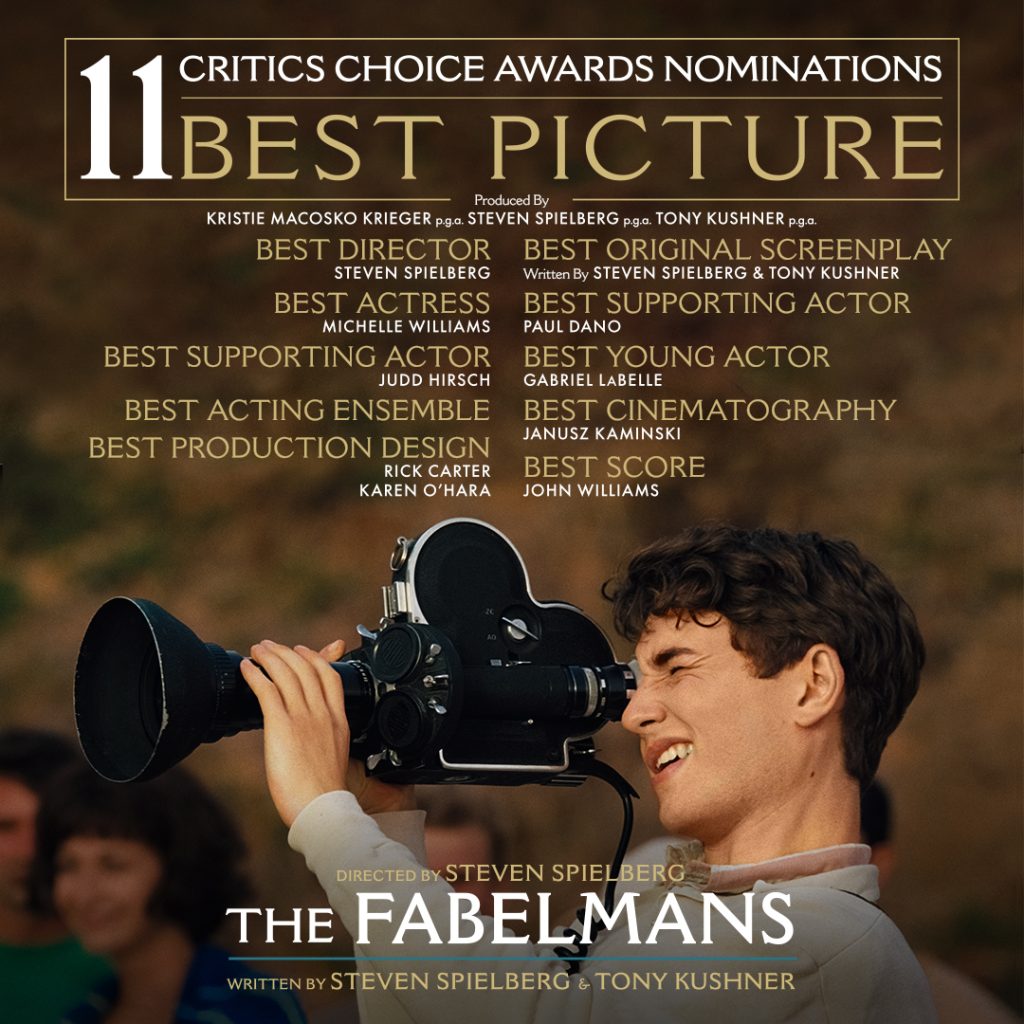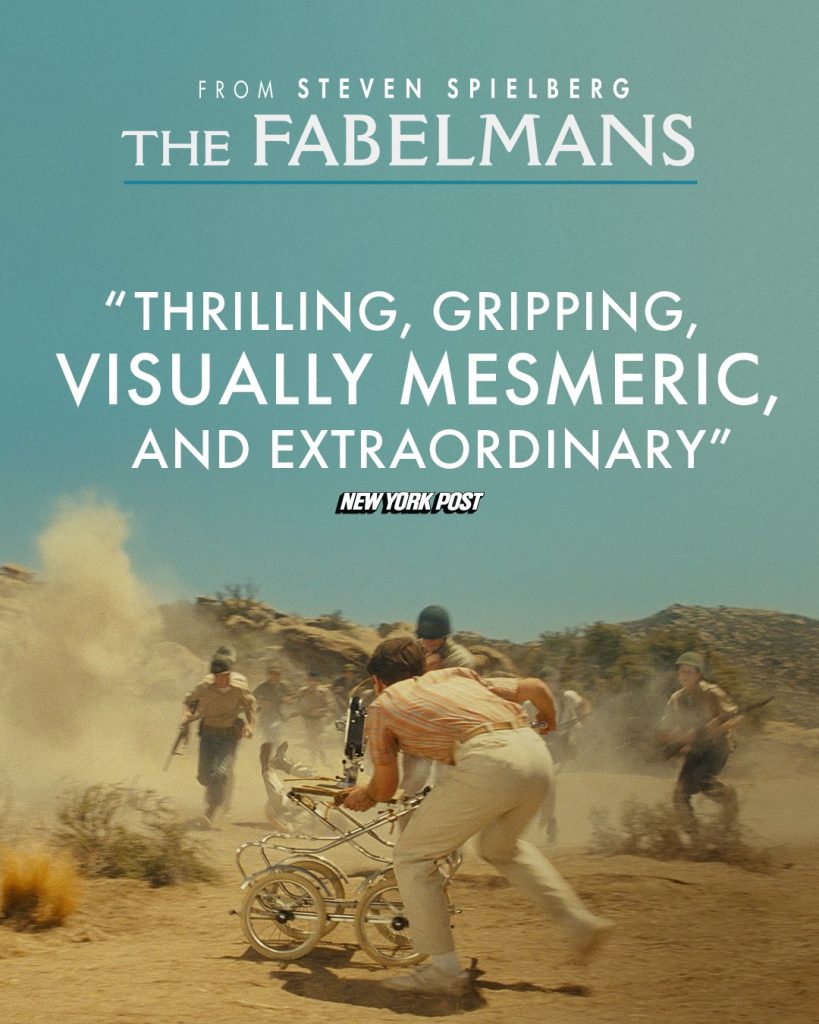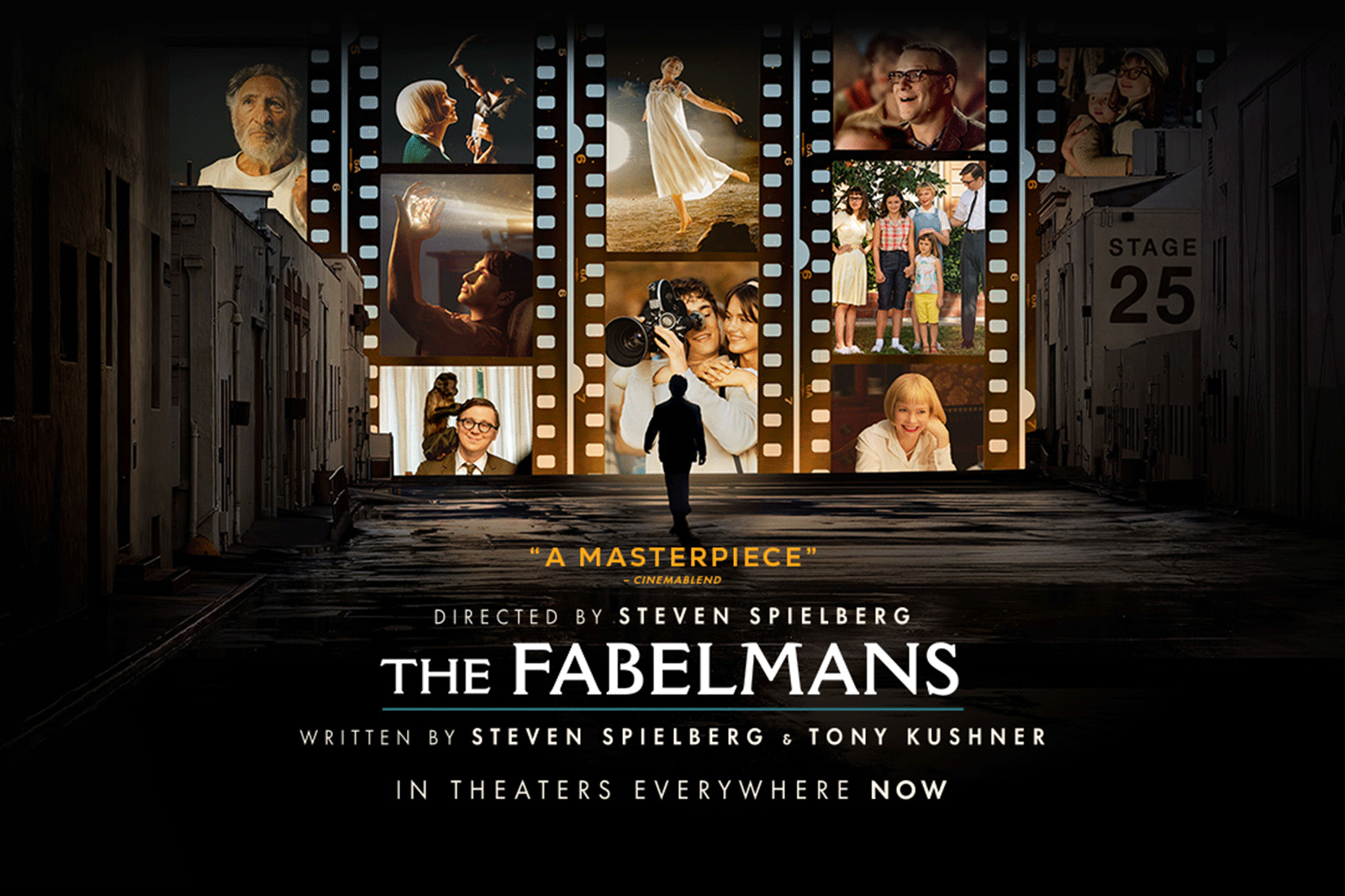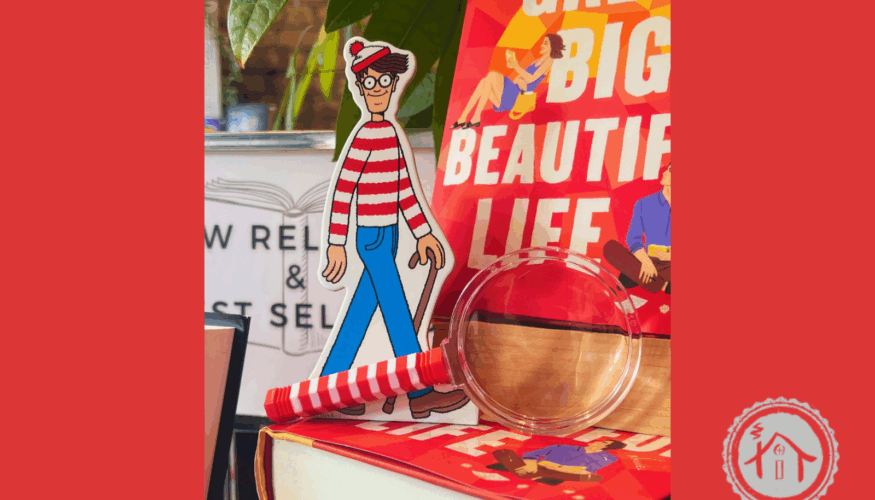I love movies, and I suspect that if you are reading this article that you love movies too.
I cannot imagine anyone who loves movies, who would not love “The Fabelmans,” Steven Spielberg’s ode to making movies and his personal journey to becoming one of the greatest filmmakers of all time. “The Fabelmans” is a coming-of-age story that just happens to be about the life of Spielberg himself, told with intimacy and affection in a wonderful script by Spielberg and Tony Kushner.
Spielberg’s filmography has frequently hinted at his own personal life story, with many of his earliest films capturing suburban life and the impact of divorce on the family. Clearly, his own history of coming from a broken marriage colored his filmmaking, and now he has shared his story for us to understand how this very personal experience shaped him as both a man and as a filmmaker. Watching the film is like being invited to eavesdrop on the most intimate details of an acquaintance’s life — it is both fascinating and flattering, a gesture of trust and amity. Spielberg clearly holds his audience in some esteem if he is willing to share this story with us. I am most grateful that he did.
“The Fabelmans” begins, most appropriately, with that most American of family nights out — a trip to the movies, in this case, Cecil B. DeMille’s “The Greatest Show on Earth.” Burt and Mitzi Fabelman (Paul Dano and Michelle Williams) are taking their young son Sammy to his first movie. Young Sammy is frightened and Mom and Dad seek to reassure him in their own ways, and thus begins the central theme that runs throughout “The Fabelmans” — Burt is a scientist for whom logic and reason are a central philosophy governing his life, and Mitzi is a concert pianist who believes that art is the most important pursuit in life. It is this interlacing of science and art that would be the yin and yang of Sammy’s life and create the great artist we know today.
At one point during “The Greatest Show on Earth,” Sammy watches a spectacular train wreck scene with which he becomes fascinated. His father naturally thinks that he is fascinated with trains and buys him a train set for Hanukkah. It becomes clear that Sammy is not absorbed with trains, but with the staging of a train wreck, and when he nearly destroys his new train set, his mother decides to let him do it one more time, but film it so he can watch his train crash over and over. Thus begins a lifelong love of making movies. Soon Sammy, now a teenager played by Gabriel LaBelle, is filming his family and friends in various staged screen plays, often inspired by the movies that he sees in the theater, like “The Man Who Shot Liberty Valance.” His mother is delighted that her son loves making movies — the pursuit of art — whereas his father is more entertained, thinking that it is no more than a hobby for his particular stage in life, while also proudly amazed at the little technical innovations that Sammy incorporates into his filmmaking.

This early section of “The Fabelmans” is particularly delightful, as you see the sprouting of this filmmaker, as fascination turns to obsession, and as his technique becomes more sophisticated and assured. However, this early innocence takes a sobering turn when Sammy inadvertently films something that will bring to a head the family dynamic that was ever present — the clash between art and science that love and affection cannot pacify.
The performances by the cast are exceptional.
Michelle Williams, as the spirited, impulsive Mitzi shows her charismatic self-absorption, and it is so important to the fabric of this film that both the charisma and self-absorption are equally balanced. Mitzi would be insufferable without her effusive charisma, which is clearly what draws Sammy to her, but at the same time the self-absorption that infuses her decisions are central to the character and story development. Williams handles this brilliantly.
Paul Dano is even better; frankly, he gives my favorite performance in the film and quite possibly, all year. Burt is the most difficult part to play. He is a sweet man who is brilliant in his field but awkward in social interactions, and clearly grateful and amazed that this beautiful, enigmatic woman is his wife. He adores her but is also at times frustrated and exasperated by her whimsicality. Dano underplays him, allowing the other cast members the greater spotlight, but in the quiet moments reveals this man’s heart in his soulful eyes and in revealing dialogue spoken barely above a whisper.
LaBelle, an actor I have never seen before, is thus a revelation as the central character in the film. His Sammy has a conundrum — he loves both his parents, but most closely identifies with his mother and yet is most sympathetic to his father, and this contradiction, this conflict LaBelle expertly conveys.
And then there is Judd Hirsch, who blows into the movie for a short cameo as the visiting Uncle Boris, who works as a lion tamer in a traveling circus, and first illuminates to Sammy the central paradox that he will struggle with for the rest of his life — his desire to create art yet also honor family. What could easily have been an overwrought character Hirsch makes both grounded and larger than life.

Lastly, there is Spielberg himself.
There is a poignancy and intimacy to this film that is a rare privilege to behold, as Spielberg takes us inside his family story and trusts us with his most painful recollections, and even points a self-critical look at himself, as when he shows Sammy imagining himself filming during what had to be one of the most painful moments of his life, as if this drama were playing out for just his own obsessive self-pursuits.
And yet, there is a joy that radiates throughout this film, the joy of recollection and remembrance that is filmed through a sheen of love and forgiveness. Spielberg is never judgmental here; he shows his family dynamic, bones and all, but you can feel that this is an act of acknowledgement and acceptance, not anger or disappointment.
And finally, a final scene that takes its place amongst my very favorite climactic scenes in all the movies I have ever watched. I won’t say any more about it but that anyone who loves movies, and loves the history of movies, will get a tingle up your spine while watching it. If you haven’t already seen “The Fablemans,” then get yourself to the theater this minute to see the best movie of the year by far.











